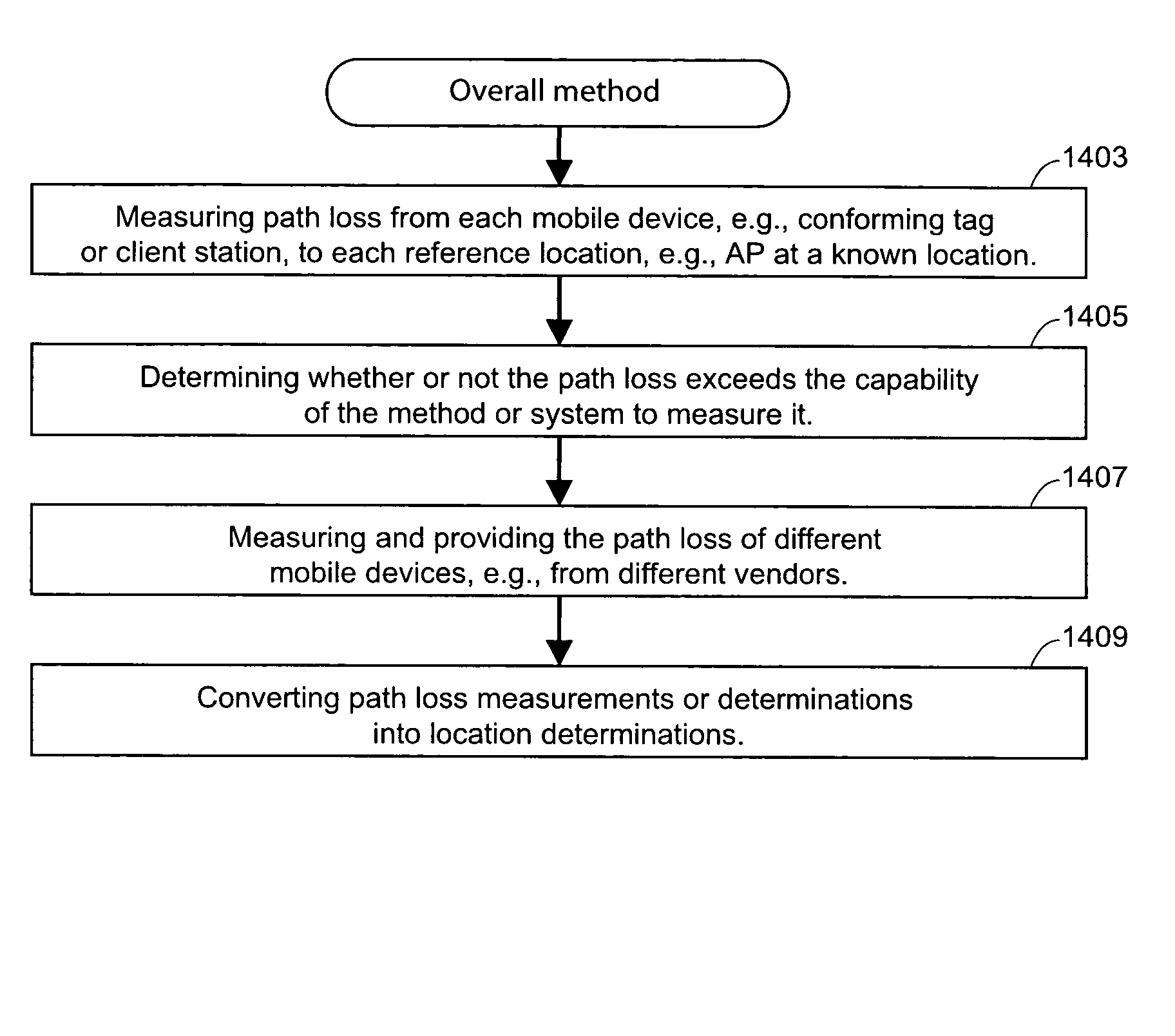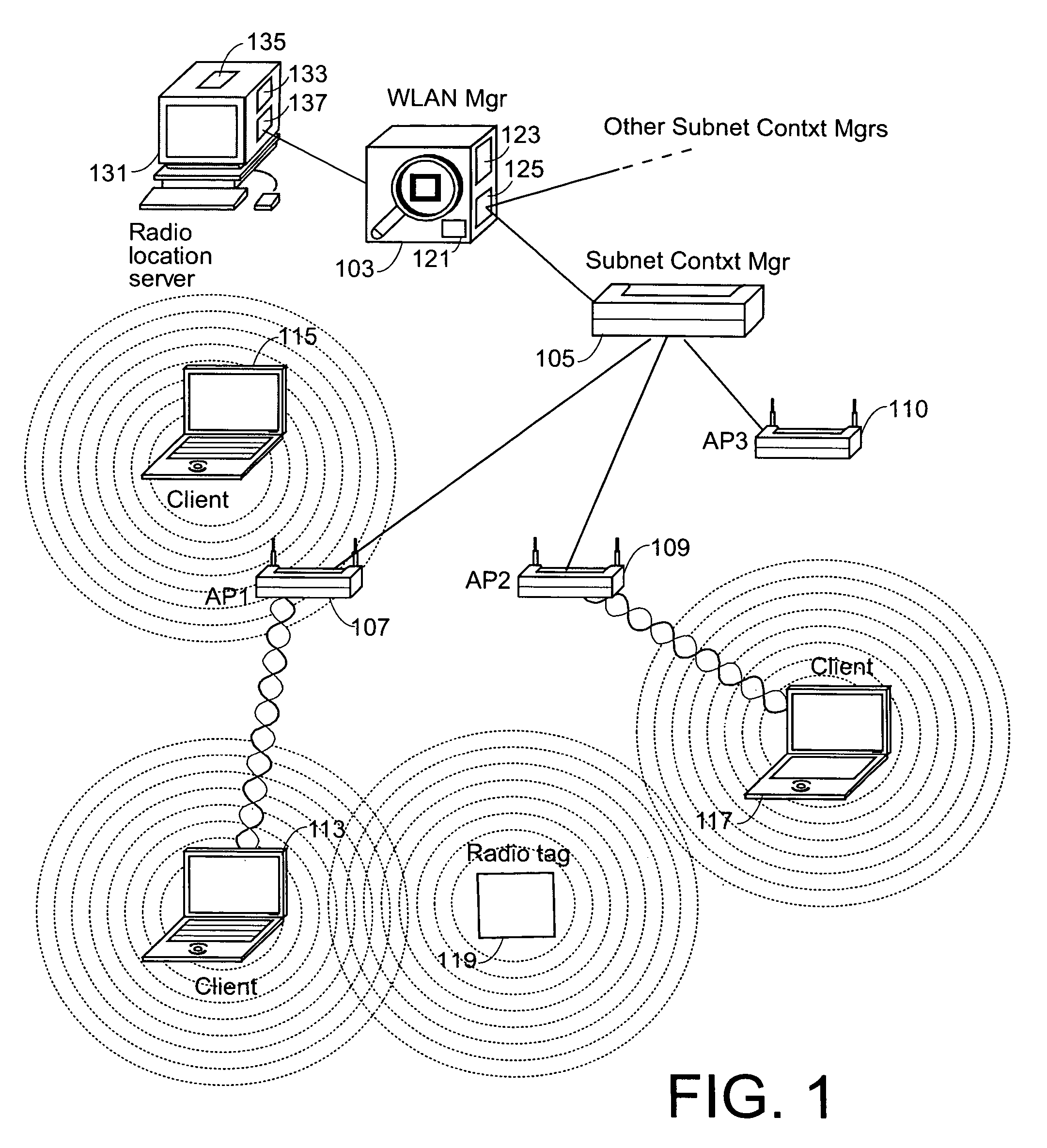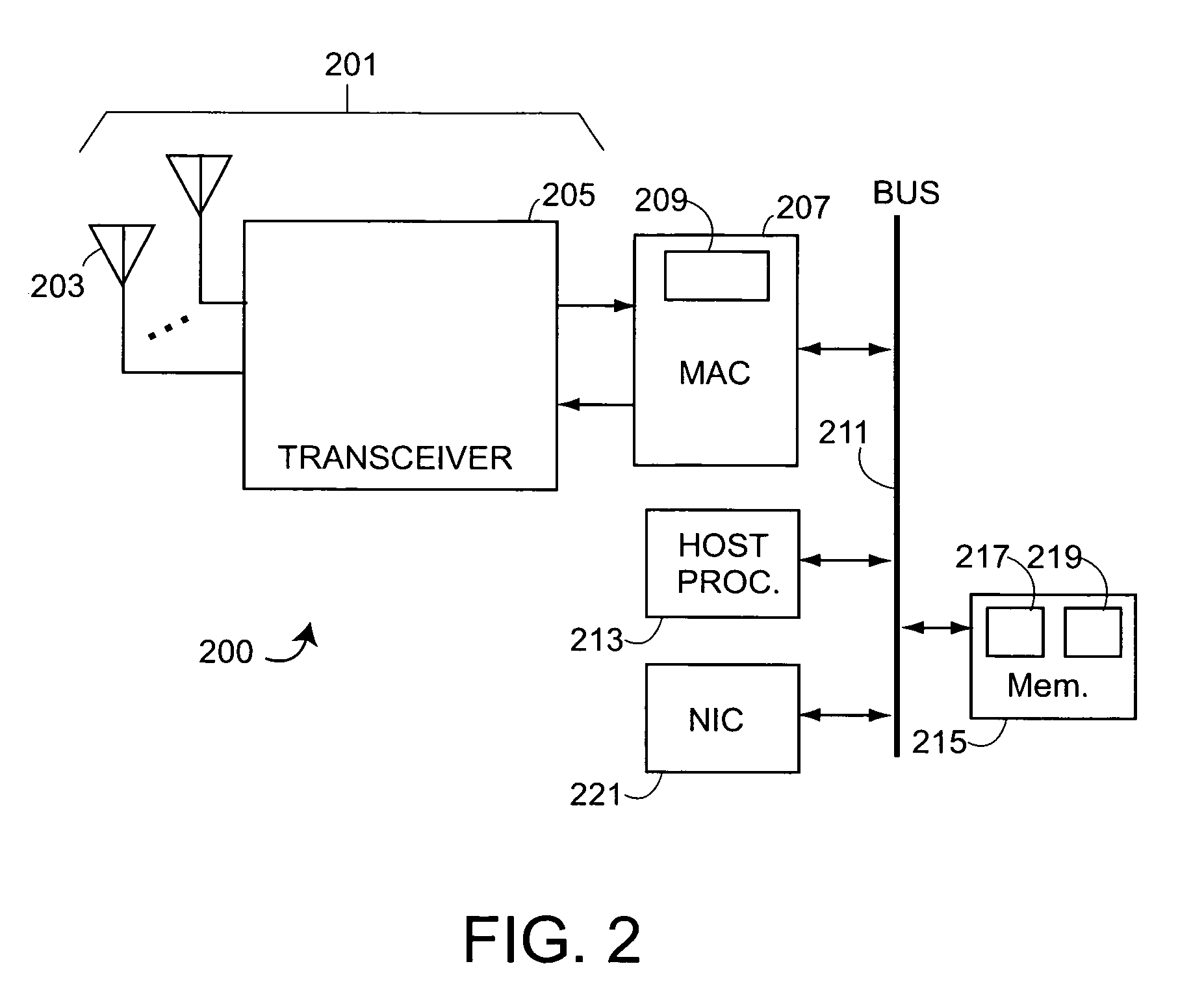Tag location, client location, and coverage hole location in a wireless network
a wireless network and client location technology, applied in the field of wireless networks, can solve the problems of increasing the cost of stations, e.g., client devices, and not including field calibration to correct ap measurements, and achieve the effect of low power consumption
- Summary
- Abstract
- Description
- Claims
- Application Information
AI Technical Summary
Benefits of technology
Problems solved by technology
Method used
Image
Examples
Embodiment Construction
[0056]One embodiment of the present invention is a method of determining the likely location or locations of a radio tag or client station, or determining the location of a gap (also called a hole) in WLAN coverage.
[0057]One aspect of the invention includes defining a common frame having pre-defined frame structure to be used by transmitting radio tags and by client stations transmitting to a pre-assigned multicast address. Such a frame is called a location frame, and also a path loss measurement frame herein. In the remainder of the description, it is assumed that the to-be-located radio tags and the client stations are “conforming” in that they transmit such a location frame. It is also assumed that access points also are “conforming” in that they listen at the pre-defined multicast address, and understand the pre-defined frame structure of a location frame. In one embodiment, the conforming APs are assumed to be managed APs in a managed WLAN as described in above-mentioned and in...
PUM
 Login to View More
Login to View More Abstract
Description
Claims
Application Information
 Login to View More
Login to View More - R&D
- Intellectual Property
- Life Sciences
- Materials
- Tech Scout
- Unparalleled Data Quality
- Higher Quality Content
- 60% Fewer Hallucinations
Browse by: Latest US Patents, China's latest patents, Technical Efficacy Thesaurus, Application Domain, Technology Topic, Popular Technical Reports.
© 2025 PatSnap. All rights reserved.Legal|Privacy policy|Modern Slavery Act Transparency Statement|Sitemap|About US| Contact US: help@patsnap.com



